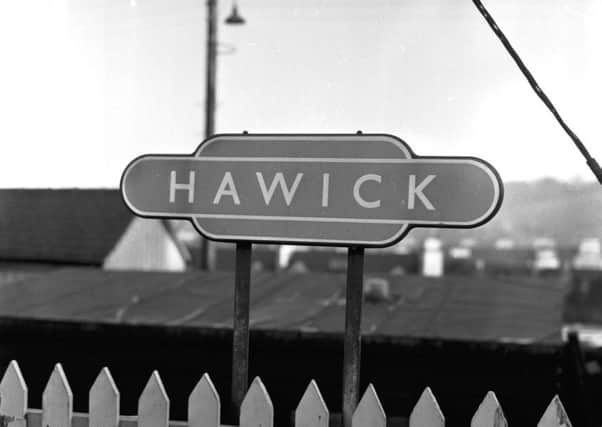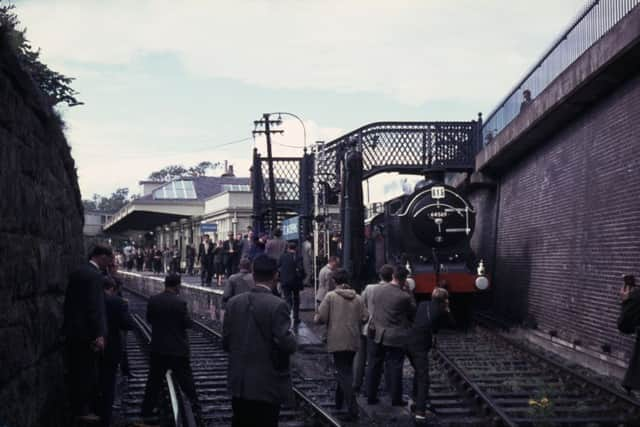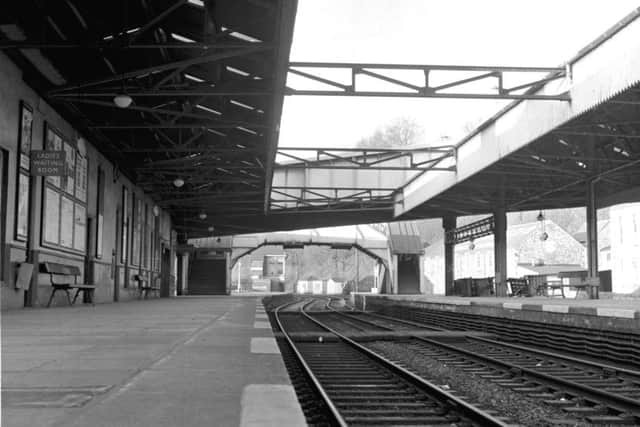Which railway lines in Scotland could be reopened?


But which of the several lines under consideration is most likely to reopen? These five schemes have all attracted a variety of public and political backing.
St Andrews branch
St Andrews, the historic Fife town beloved by tourists and golf enthusiasts, lost its rail link in 1969.


Advertisement
Hide AdAdvertisement
Hide AdThe St Andrews Rail Link campaign (StARLink), founded in 1989, published a report in 2017 highlighting the benefits of re-opening a five-mile line to the town from Leuchars.
However, a funding bid for a detailed appraisal had still to be confirmed as part of the Tay City Deal project to be submitted to the Scottish and UK governments for approval. New lines can only be progressed if they fit wider public policy objectives as well as offering a robust business case.
Levenmouth link
Elsewhere in Fife, campaigners are in process of piecing together detailed plans for the reopening of a five-mile line from the coastal town Leven to the existing junction at Thornton. A petition to reinstate it, launched by the Levenmouth Rail Campaign group, has so far attracted 12,500 signatures.


“It is a mothballed route still entirely in rail industry ownership,” rail consultant David Spaven told The Scotsman in 2015. “The population of Leven, Methil and Buckhaven is the largest conurbation in Scotland with no train service. The first mile from Thornton is now back in operation for coal trains. It’s an obvious top priority.”
Fraserburgh/Peterhead - Ellon
The Buchan fishing ports of Peterhead and Fraserburgh have now replaced Galashiels and Hawick as being the furthest major settlements from the UK rail network.


Last year, Aberdeenshire Council’s backed the development of fresh road and rail links from Ellon to the towns.
But given a full reopening would require some 55 miles of track north of Dyce - at an estimated cost of £700m - a phased reopening seems more likely, should it win central government backing.
“The first phase could be from Dyce on the Aberdeen-Inverness main line to a park-and-ride or bus interchange at Ellon,” added Spaven.
Alloa - Dunfermline


Advertisement
Hide AdAdvertisement
Hide AdDunfermline was once served by two town centre stations, with direct connections to Perth in the north and Alloa, Stirling and beyond in the west.
But the closure of Dunfermline Upper station deprived the Fife town with a direct link to Alloa. Commuters travelling from Fife to Glasgow must now cross the Forth to Edinburgh before changing trains.
Following the closure of Longannet power station in Kirkcardine, there have been calls for the existing freight line which links the reopened station at Alloa with the historic village of Culross to be opened to passenger traffic.
Borders railway extension
With the new Borders Railway to Tweedbank already proving a success, campaigners believes extending it south to Hawick and onwards to Carlise. would be the next logical step.
“Hawick suffered most from the loss of the Waverley Route in 1969 deserves to get its rail link back,” said Spaven. “It would require 17 miles of new construction south of Tweedbank - including some awkward new road crossings where local and central government failed to protect the line of route from the 1970s to the 1990s.
“But it’s certainly achievable, and could also serve Melrose and Newtown St Boswells, a with park-and-ride and bus interchange for Kelso.”